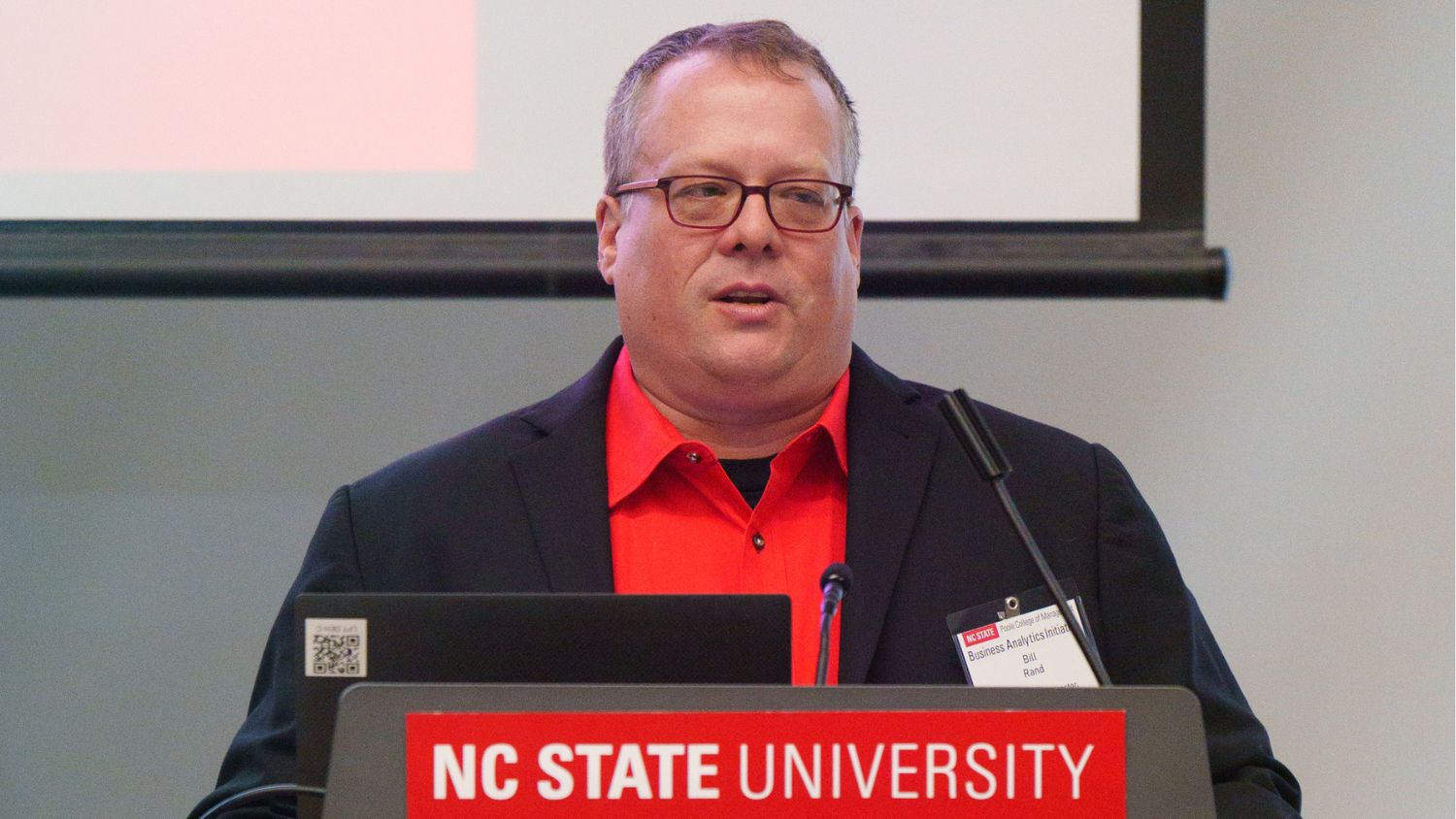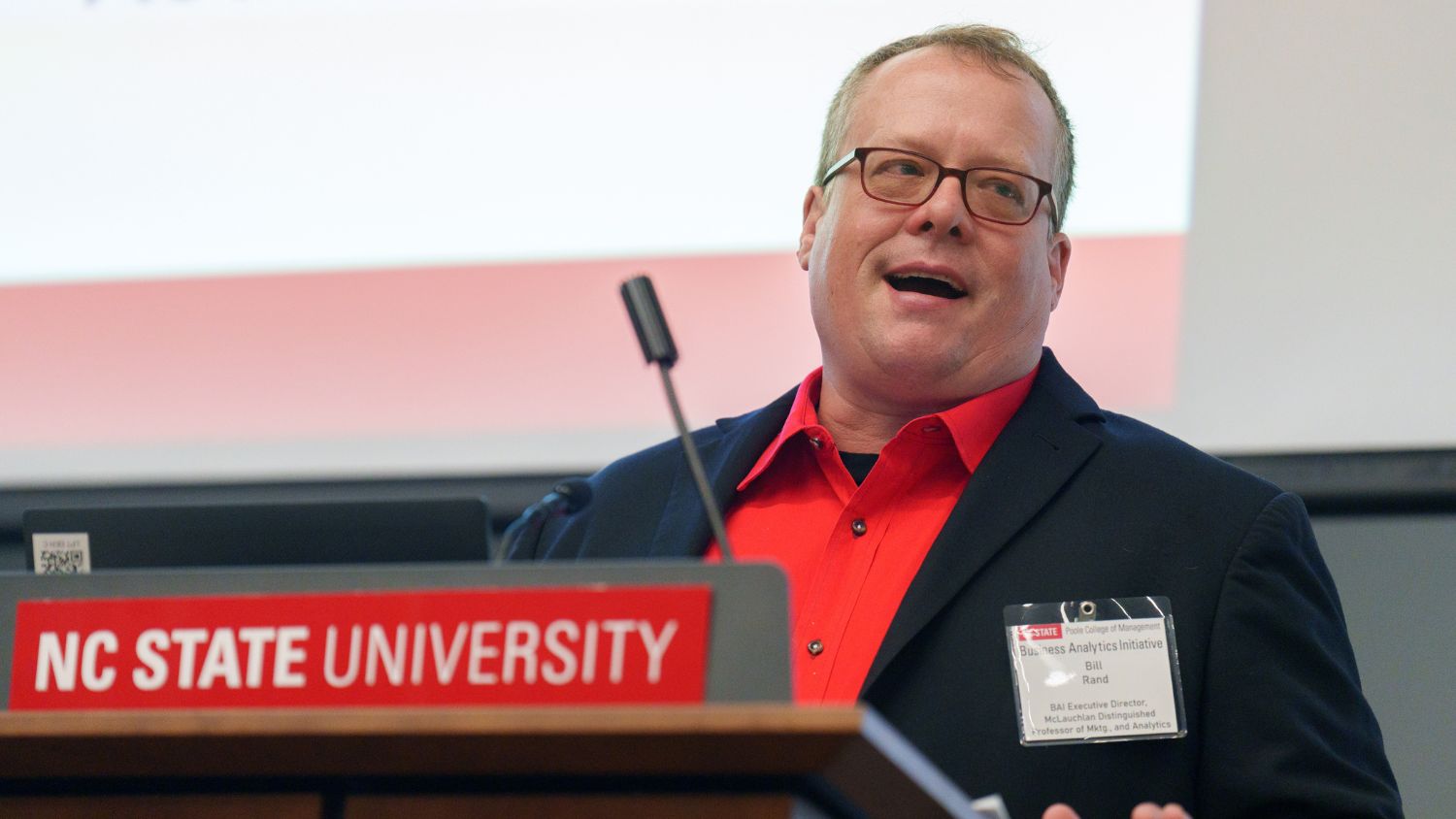Professor Beasley Talks about Managing Risks in Business
Mark Beasley, the Deloitte Professor of Enterprise Risk Management in the Poole College of Management, is researching how organizations navigate the many sources of uncertainty and risk that affect their success.

As a research-extensive university, NC State works to create economic, societal and intellectual prosperity. As part of its summer research series, the NC State Alumni Association highlights innovative work of Wolfpack students, faculty and alumni.
In this Q&A, the Alumni Association communications team interviewed Mark Beasley, Deloitte Professor of Enterprise Risk Management in the NC State Poole College of Management. Following are his responses, which were edited for clarity and style.
Q: Can you tell us about the research you are working on this summer? What are you hoping to accomplish or learn?
Competition, the pace of innovation, concerns about cyber security, the changing geo-political environment, terrorism, emerging regulations, and a host of other issues create uncertainty that triggers complex risks for business executives to consider. Leaders of organizations know they must take risks to grow the business, but they seek to do that intelligently. My research focuses on understanding how organizations navigate the risks affecting their success. This summer, I am working with colleagues to understand the current practices surrounding how organizations manage risks. We are examining what characteristics of their enterprise risk management (ERM) processes provide the greatest strategic value for the organization.
Q: How did you become interested in this topic?
Individuals who serve on the board of directors or in senior executive positions are expected to be more effective in managing risks. High-profile business failures highlight the critical need to manage potential risks. As a result, business leaders seek ways to effectively identify, prioritize and manage the most critical risks that might affect their organization. In response to this business need, faculty who lead the Poole College of Management’s ERM Initiative are helping these business leaders provide thought leadership on the topic of ERM, with a particular focus on how it intersects with strategic planning and corporate governance. Our work with business leaders has helped highlight the need for relevant academic research on this important topic.
Q. What do you find most fascinating about your research?
The goal of an effective ERM process is to help an organization increase the odds it will achieve its strategic objectives. As we advise organizations, we must learn what drives value for the organization strategically. That is, we need to understand what the organization views as its “crown jewels” of success so that we can help them identify and prioritize risks that might impact them. Learning about what makes a business successful is fascinating, and it directly impacts how I teach students as a part of their business education offered by the Poole College of Management.
Q: Research can be complex and difficult to explain. Do you have an analogy that you use to explain your work to the average person?
Individuals know that they must take risks in life to achieve greater heights. They need to understand the types and nature of risks they face so they can manage them within their appetite for risk-taking. An analogy might be taking a trip in a car. They know that there are risks to driving — accidents, running out of gas, getting lost, having car trouble. To minimize the likelihood of events such as those, they drive the speed limit, wear seatbelts, buy car insurance, keep an eye on the gas tank levels, have access to Google maps, and change their oil before they depart. Then, their trip is more likely to be enjoyable and not fraught with unfortunate events they must address. In the same manner, organizations want to manage risks in an informed way to increase the odds of their success.
Note: This Q/A was originally published by the NC State Alumni Association.


